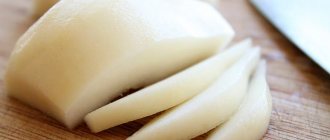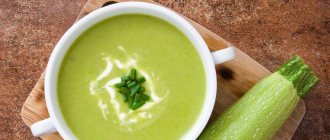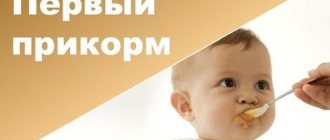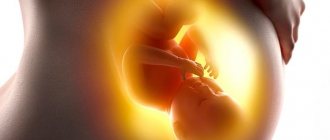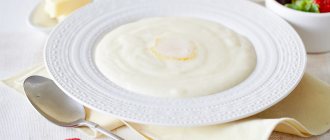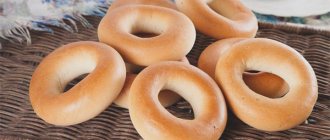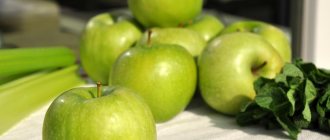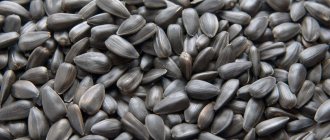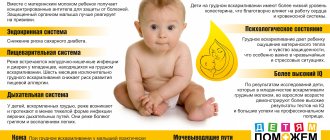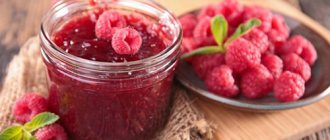Most women believe that during breastfeeding it is advisable to give up bakery products. However, this is not an entirely true statement. Bread contains nutrients that help strengthen the immune system and improve digestion in a baby.
But if you use it excessively, excess weight may appear, which, of course, will not suit any woman. What to do if you want to eat bread and maintain your figure? And this problem can be solved by replacing bread and bakery products with crispbread. They are lower in calories and bring more benefits to the mother and her baby. Crispbread helps rid the body of excess salts and fluids, and also has a positive effect on the newborn’s immune system.
Let's consider which breads nursing mothers should choose, what benefits they bring and how to properly introduce them into the diet.
Benefits of bread for nursing mothers and their babies
The breads contain buckwheat and pearl barley, corn and wheat. Due to the fact that they do not contain any additives or chemicals, but only healthy cereals, bread is one of the safest products for women and their babies during lactation.
High-quality bread made from ingredients of natural origin have a whole list of beneficial properties. These include:
- improving the functioning of the digestive system;
- cleansing the body and absorbing toxins;
- strengthening the immune system;
- fight against extra pounds, thanks to low calorie content;
- positive effect on breast milk production;
- restoration of nutrient levels in the mother’s body;
- increased hemoglobin levels in the blood;
- effective assistance in the fight against colds, diabetes, skin diseases and central nervous system diseases;
- the content of a large number of vitamins and microelements helps to increase the nutritional value of breast milk;
- prevent bloating and colic in a newborn.
Due to the content of saturated and polyunsaturated fats, as well as fatty acids, the breads are easily absorbed by the body. All these components contribute to the normal functioning of the entire body. That is why during breastfeeding one should give preference to bread.
Crispbread for breastfeeding
The crispbreads are made from high-quality cereals, which makes them healthy and rich in vitamins. How does the product affect the body of a woman and baby and is it allowed during breastfeeding?
Beneficial features
Bakery products, which include bread, contain a large amount of nutrients. They have a beneficial effect on the functioning of the digestive system and the immunity of the nursing mother and baby. Depending on the raw materials used, there are several types of bread:
- Cornbread contains a lot of carbohydrates, which increase energy potential. The product contains B vitamins and minerals that improve digestion. Due to their low calorie content, they can be consumed even if you have weight problems.
- Rice cakes are an ideal option for a snack and to quickly satisfy your hunger. Due to the high fiber content, the product is difficult to digest for an unadapted baby’s body, so you should not abuse it.
- Rye products are the most healthy variety, which is enriched with minerals (iron, phosphorus and calcium) and vitamins (PP, B, B2 and E). This product is quickly and easily digested by the baby’s digestive system without causing any adverse reactions.
- Buckwheat bread is a low-calorie product enriched with vitamins and minerals, which is why it has gained popularity among nursing mothers. Consumption of the product normalizes cholesterol levels in the blood and has a positive effect on intestinal function.
- Wheat bread is the most delicious type, which has a rich vitamin and mineral composition.
All breads are rich in fatty acids and polyunsaturated fats, which are very beneficial for the body.
Contraindications
Everyone can eat bread, the main thing is to observe the measure. Women who are prone to obesity should treat the product with special caution. The high carbohydrate content of some varieties leads to weight gain.
Precautionary measures
You should introduce bread into your diet gradually, starting with a small piece in the morning. This will make it possible to track the baby's reaction. If any side effect occurs, remove the product and try again after a few months. If the child reacted normally to the bread, feel free to add it to the menu, but not more than 100 g per day.
Before purchasing a product, carefully read the ingredients on the label. Natural bread should not contain flavor enhancers, flavorings or other additives. In addition, high-quality and fresh bread products have a good crunch. If there is no characteristic sound, it means that the storage conditions of the product have been violated, and it is better to refuse to use it.
ymadam.net
Which bread should a woman choose during lactation?
During lactation, every nursing mother should first think about the health of her own child. Therefore, she should make a choice in favor of high quality natural products. This fully applies to bread.
A quality product should not contain milk powder, chemical food additives, dyes, or spices. All these components have a bad effect on lactation and harm the body of a newborn baby.
Today you can see different varieties of bread on sale.
Wheat
Wheat bread does not contain yeast, salt, sugar or other additives, which makes it absolutely safe for a newborn baby and a nursing mother. A woman can introduce them to her menu already in the first month after giving birth. These are very tasty, but rather hard breads.
Rye
These products are prepared with the addition of yeast, salt and margarine. In addition, they differ from other types in their high calorie content (100 grams contain 360 kcal). Eating rye bread during the lactation period is not recommended earlier than 1 - 2 months after the birth of the baby. Rye products help restore strength and saturate the body with useful elements.
Buckwheat
This type of product has the lowest calorie content among all varieties of bread. They contain large quantities of essential microelements and vitamins. The presence of slow-digesting carbohydrates contributes to normal digestion and better digestion of food. Buckwheat bread helps quickly satisfy hunger and virtually eliminates the occurrence of allergies.
Oatmeal
These products contain large quantities of protein, and they help with kidney and colds. These are soft breads that literally melt in your mouth. They are perfect for the diet of breastfeeding mothers and children over 3 years of age.
Corn
Products made from corn flour are very high in calories, so they are difficult to digest. A significant advantage is the absence of gluten in their composition, which prevents the occurrence of an allergic reaction and bloating. Cornbread can be eaten by a nursing mother 1 or 2 months after giving birth.
Rice
Products made from rice flour can be consumed as a snack. They are rich in important and beneficial microelements, and provide quick saturation of the body. But their digestion is difficult, which can cause stomach upset. In this regard, it is not advisable to eat rice cakes in the first month of breastfeeding.
Whatever products a woman chooses to eat while feeding her baby with breast milk, she should adhere to the following recommendations:
- they should not contain premium flour, starch, preservatives or yeast;
- Briquettes should not be heavily baked, their surface should not be rough, and there should be no voids inside.
- For their production, coarse peeled flour or whole grains should be used. High quality bread should be well dried and brittle.
What kind of bread can you eat while breastfeeding: rye, white and crispbread
A young mother is always worried about the health of her baby. His condition largely depends on his mother’s diet. Here women make mistakes: they either eat too much food or go on a strict diet. In the first case, the mother believes that it is necessary to eat for two. In the second, he is afraid of harming the child, so he limits himself in everything. Both approaches are wrong. The mother herself must have strength and health, otherwise it will be difficult for her to raise her baby healthy. Since bread is the basis of the diet, many people are concerned with the question: is it possible to eat bread while breastfeeding? And which?
More details
Bread is both a source of valuable substances and a junk food. It all depends on the variety, as well as the quantity of the product. Even a small piece eliminates the feeling of hunger and gives a feeling of fullness. The stores have a wide range of baked goods: loaves, crispbreads, buns. Which bread is better?
Popular varieties:
- white. Its base is wheat flour;
- black. Prepared from rye barley or oatmeal;
- with bran. Coarse flour is used. Baking with bran is rich in vitamins;
- malt. With malt content.
Since bread is an important component of lunches and dinners, it will not be possible to completely exclude it from the diet. This is not necessary, because such a product contains valuable substances that are very useful for a young mother. Therefore, it is better to strive to take from it everything you need. So, what is the best food to eat while breastfeeding?
The formula for losing weight is simple - burn more calories than you take into your body. The mistake of all those who lose weight! Girls, just lose weight, here’s the recipe: before breakfast... Read more...
When breastfeeding, a product with bran is important, because it is useful for iron - an important element during lactation. It is dietary and does not contain synthetic additives. You can eat it every day.
Black bread is also good. But they use it less. The black loaf contains useful substances in the quantities necessary for a young mother. But it is better to remove white baked goods and products with malt from the diet. It is recommended for all women to limit their quantity: high levels of glucose are not absorbed, which leads to the accumulation of extra pounds.
Additives in white baked goods are harmful to the baby, and it is better not to eat buns at all while breastfeeding. Bran bread is very tasty and should be consumed.
Benefits and harms
Bread can both benefit and harm a mother and her baby. Useful properties of bread during breastfeeding:
- building protein, fiber, B vitamins: black bread and bran bread are rich in all these substances;
- B vitamins protect the nervous system of mother and baby from stress. It is believed that bread is a source of strength and calm, which is so important when breastfeeding;
- If you do not consume baked goods at all, the risk of cellulite in a nursing woman increases.
Harm:
- buns, buns, white bread contain calories and fat. During breastfeeding, they do not bring benefits, but only contribute to weight gain. It takes a lot of time for the body to digest buns, and digestive system upset may occur. Then the mother may have to not feed the baby for some time;
- black bread is a source of complex carbohydrates, so it can and is recommended to be eaten by a nursing mother. But not everyone has enough enzymes in their body to digest complex carbohydrates. Therefore, it is better to listen to your feelings. If, after eating a black loaf, you experience heaviness and an unpleasant feeling of bloating in your stomach, it means that your stomach and intestines cannot cope with such a product. The same condition can occur in a child after receiving breast milk.
How to choose and what you need to know
But the benefit cannot be maximum if the product has been lying around for a long time or poorly stored. Then the healing substances disappear. Therefore, when breastfeeding, you need to choose loaves especially carefully. Recommendations.
- The surface must be smooth and of the same color.
- If the loaf smells too good, it means that synthetic substances have been added to it. They can harm the health of mother and child. Therefore, it is better to choose products without a pronounced odor.
- In order for the product to be not only healthy, but also tasty, you should check it for readiness. After all, only well-baked baked goods provide pleasant sensations and pleasure from the taste. You can check if the product is baked like this: squeeze the bun, and then look at its condition. A high-quality baked product will return to its shape, but raw dough will remain compressed.
- In packaging on the counter, the product is stored less, and its beneficial properties are lost. Therefore, it is better to take only fresh baked goods that have been sitting for no longer than a day.
- If the baking is too light, substances have been added to the dough that activate the yeast. Such substances are harmful to the child’s health and cause allergies. You can notice the “lightness” of the loaf by the wide pores inside the product.
If mom suffers from indigestion, baking helps avoid these problems. For example, black rye bread or a product with bran stimulates stool and helps cleanse the intestines. You can use these products for constipation.
But for those who suffer from diarrhea, it is better to exclude such food from taking it. It is important to remember that even high-quality and baked bread loses its quality over time and can cause diarrhea, constipation, and intestinal upset in infants.
How to eat and not gain weight
When breastfeeding, young mothers worry about many questions. What kind of bread can you eat? Will it harm the baby? How to eat without gaining weight? How to maintain your figure?
It is important to determine the state of your body and organism before pregnancy. If the mother has a tendency to be overweight, during lactation it is necessary to limit the intake of baked goods. And exclude buns altogether; it is better to choose bread. Of course, you shouldn’t exclude bread products completely, because you want something tasty and healthy. But it is better to limit their use.
For those who want to lose weight, during lactation you can choose bread and baked goods made from wholemeal flour. They are not only low-calorie, but also nutritious - what a young mother and her baby need. Is it possible to eat white bread? In small quantities, otherwise it will do more harm than good.
Nutrition during lactation is very important. Not everything can be consumed; some foods are prohibited. What remains is bread, which always retains strength and well-being, provided that it is chosen and consumed correctly.
grudnichky.ru
Can bread be harmful to health during lactation?
Readers of Ogrudnichke.ru recommend: - Review of the most popular vitamin supplements for children from Garden of Life Read the article >>> - How can Earth Mama products help young parents care for their infants? Read the article - Dong Quai is an amazing plant that helps maintain youth in the female body Read more... - Vitamin complexes, probiotics, omega-3 from Garden of Life, designed specifically for pregnant women Find out more >>>
Bread can only cause harm to a baby and a woman during breastfeeding if consumed in excess. In this case, the following problems may occur:
- constipation and bloating may occur in both mother and baby;
- if a child is intolerant to gluten, allergic manifestations may occur, which are often accompanied by a rash on the skin, intestinal discomfort and diarrhea;
- if switching to bread rolls is associated with the problem of excess weight, then eating them in large quantities will not only not help get rid of obesity, but will also contribute to the gain of additional kilograms.
This product is contraindicated if you have intestinal diseases, ulcers or gastritis. If there are disturbances in the functioning of the gastrointestinal tract, before introducing such bread products into the diet, you should consult a doctor.
Consumption of rye bread during the lactation period
Rye bread is a very popular product among nursing mothers who strive for proper and balanced nutrition. They contain large quantities of vitamins, beneficial microelements and fiber. They are an excellent dietary product.
During breastfeeding, you can eat rye briquettes in small quantities. The presence of fiber in their composition has a positive effect on the functioning of the digestive system. Fiber also helps remove toxins from the body.
Eating rye bread during breastfeeding for 1 month after birth restores the balance of nutrients in the body. But nursing mothers should approach such products with caution. Excessive consumption can cause constipation.
What kind of bread can a nursing mother
Most people cannot imagine their diet without bread. Bread is the head of everything. It is an excellent addition to almost any dish, adding satiety and energy. In addition, the variety of types of bread today allows you to choose what you like best. What kind of bread can you eat while breastfeeding? Does it make sense to bake baked goods at home or can you just buy them at the store?
Bread during breastfeeding: benefits and harms
Bread is a valuable nutritious product. It is rich in carbohydrates, which give strength, fiber, which stabilizes intestinal function, vegetable proteins, B vitamins and minerals. All this is necessary for a nursing woman to live fully and care for her child. By the way, all the beneficial properties apply more to black varieties (Borodinsky, rye, etc.), since the flour for such products undergoes less processing.
We must remember that everything is good in moderation. A large amount of bread products in the diet can cause serious health problems, for example, chronic constipation, excess weight gain, which will entail many other unpleasant consequences. A large amount of bread products in the diet will have a bad effect on the baby, causing constipation, colic and possible allergic reactions.
Can a nursing mother eat bread? Of course, it is possible and even necessary! But the measure is very important so that bread does not turn from a tasty and nutritious product into a forbidden fruit.
What kind of bread can a nursing mother eat?
When choosing food products for a young mother, you need to start not so much from gastronomic preferences, but from the benefits. Not all types of bread are useful for a woman with breastfeeding.
White varieties of baked goods are very high in calories. They are not recommended for use during breastfeeding. Fast carbohydrates are quickly processed, turning into sugar, it causes appetite, and the body requires more and more portions of food, this is a direct path to weight gain. Most women after childbirth want to get rid of extra pounds, so white bread is not the best option. If there are no problems with weight, then this type of bread will not harm either mother or baby if it is eaten in moderation and in moderation (no more than 200 g per day for an adult).
Brown bread is more beneficial for nursing mothers. The baby’s digestive system accepts rye bread much easier, so this variety is preferable for breastfeeding. Its only drawback is the ability to cause heartburn and increase acidity, but this only affects those people who have problems with the gastrointestinal tract. If you have diseases of the stomach and intestines (gastritis, ulcers, high acidity), then it is better to give preference to varieties made from white flour.
When buying bread in a store, you need to carefully read the composition so that it does not contain various additives (food chemicals, allergens, for example, nuts, etc.). Bakery products with additives can cause a negative reaction in a child, so they should be avoided, giving preference to plain rolls and loaves.
If close relatives of a child are diagnosed with gluten intolerance, then there is a chance that the child will also suffer from this disease.
In order not to provoke negative reactions, it is better to give up baked goods during breastfeeding or replace them with gluten-free analogues
Very often you can find bread with bran. Bran is undoubtedly beneficial, as it is an additional source of fiber. Among other things, they contain many minerals and vitamins, promote weight loss, cleanse the body of toxins, and normalize cholesterol. But during breastfeeding, this product should be treated with caution, since excess fiber in the mother’s diet causes colic and gas in the baby.
Yeast bread is also not the best choice for a nursing woman. Yeast, when combined with starch, can cause tummy discomfort in a newborn, which may include restlessness, bloating, colic and indigestion. When purchasing baked goods for a nursing mother, you need to pay attention to yeast-free varieties.
The raw materials from which the bread is made play an important role. The flour should be of high quality, but it is better not to take the highest grade. White refined flour is obtained by treating raw materials with special chemical bleaches. Unfortunately, there are practically no useful substances in such a product. Regular first-grade flour or rye flour works well, but it is best to buy bread made from whole grain raw materials. Whole grains will provide the body with fiber, but its amount will not exceed the norm and will not cause colic in a newborn.
Thus, we can conclude that whole grain yeast-free bread is most preferable for a nursing mother. The problem is that it is difficult to find such bread, since it is not sold in any store. The price of the product will be noticeably higher than the usual loaves - this aspect can also become an obstacle for a family with limited funds. If it is not possible to buy such bread, then during breastfeeding you can eat any other varieties that are available. The main thing is to observe the measure so that overeating does not affect the baby.
How to introduce bread into your diet during lactation
Breastfeeding is a period when the mother’s nutrition should be as healthy and safe as possible for the baby. Each new product, even harmless at first glance, can cause a negative reaction in the baby. To prevent bread from harming your child, you need to follow a number of rules for its consumption and introduction into the diet during breastfeeding:
We recommend reading: Can a nursing mother have pearl barley?
- We must remember that bread is not food, but only an addition to the main diet. The total amount of flour products should not exceed 200 g per day. For a nursing mother, it is better to reduce the norm to 100 g (two or three pieces).
- You can try bread for the first time already in the first month of the baby’s life, if there are no problems with constipation and the birth was natural.
- If you had a cesarean section, you should be more careful about your diet and hold off on foods that can cause constipation.
- For the first time, you can eat a small piece of bread (no more than 30 g) in the morning. You should observe how your newborn feels and behaves throughout the day. If the baby reacted well, then the bread can be eaten without fear, but not exceed the daily allowance.
- In case of negative reactions (rash, colic, gas, etc.), you should temporarily abandon baked goods in your diet. After a few weeks, you can try a different type of bread; perhaps there will be no reaction to it.
- You cannot eat bread with mold, even after cutting it off. When mold spores enter the body, they cause many diseases.
- During breastfeeding, it is healthier not to eat fresh bread, but to slightly dry it. If fresh soft baked goods can cause constipation and colic in a baby, then a dried piece of bread does not have such properties, and therefore is safer.
While breastfeeding, it is better to completely avoid sweet baked goods made from refined flour. This product will not benefit either mother or baby.
How to choose bread in a store
A nursing mother should take the quality of her diet seriously. When choosing bread in a store, you should pay attention to the following points:
- Good baked bread quickly returns to its shape when kneaded.
- The crust should have a uniform color (a slight difference in color on the upper crust in the darker direction is allowed).
- The structure of the bread should be quite dense and finely porous.
- A quality product always smells good. If there is a smell of acid, yeast or mold, then it is better not to take such a product. The strong aroma of spices should also alert mommy, since many of them are prohibited during breastfeeding.
- It is important to look at expiration dates. Only fresh bread is recommended for purchase, since when stored in polyethylene for a long time, the product loses its beneficial properties.
How to bake healthy bread yourself
To be 100% sure of the quality of your bread, you can bake it yourself. No special culinary skills are required. It’s ideal if you have a bread machine at home, but everything will work out without it.
This bread will be useful not only for the nursing mother, but also for the rest of the family.
Ingredients:
- Hercules - 1 full glass.
- Whole grain flour - 1 full cup.
- Milk 2.5% – 250 ml.
- Salt – 0.5 teaspoon.
- Sugar – 1-2 tablespoons. If you don’t like the sweetish taste, then you need to add less sugar or not use it at all.
- Baking powder - 2 teaspoons.
- Olive oil – 1 tablespoon. Can be replaced with sunflower oil.
Preparation: Mix flour, baking powder, flakes, salt and sugar in a bowl. Pour warm milk, add butter and mix well. The dough will be liquid, so you will need a baking dish. The mold must first be greased with vegetable oil. Pour the dough into it. Bake in the oven at 220 degrees for 20-30 minutes. The baking time depends on the oven, so you can check the doneness with a toothpick.
There is no need to deny yourself bread during breastfeeding. If the mother chooses the right variety and is reasonable about the amount of product in the diet, then the newborn will not be in any danger.
mladeni.ru
Buckwheat bread on a nursing mother's menu
Buckwheat is a very healthy cereal that contains numerous vitamins and minerals. Therefore, bread made from buckwheat is very often included in the diet of mothers who are breastfeeding their babies.
First of all, the benefits of buckwheat bread during lactation are associated with their positive effect on the functioning of the organs of the digestive system. With the help of slow carbohydrates contained in buckwheat briquettes, the body weakened after childbirth is saturated with energy. Buckwheat-based breads make you forget about the feeling of hunger for a long time.
In the course of ongoing research, it was revealed that such products are beneficial not only when feeding a child with breast milk. Systematic consumption of buckwheat briquettes in a limited amount leads to improvements in the functioning of the gastrointestinal tract in cancer patients and people suffering from diseases such as diabetes.
Benefits and harms
Crispbread is easier to digest by the body than classic bread. After eating bread, a newborn rarely experiences colic and bloating.
They help remove excess salts and fluid from the body of a nursing mother. Moderate consumption of bread has a positive effect on the child's immunity .
Crisp bread contains more minerals, protein and fiber than regular bread. In addition, they are rich in vitamins A and E, B1 and B2, PP and beta-carotene. The bread contains such important microelements as sodium and magnesium, calcium and potassium, iron and phosphorus.
Attention! The chemical composition of the product depends on the components from which the bread is made. The product is dietary and recommended for moderate consumption during lactation.
Bread Dr Korner
Among the numerous manufacturers involved in the production of bread, one can highlight a domestic company that produces products called Dr.Korner.
Despite their name, which is far from Russian, these products are a Russian product. The manufacturer produces a wide range of breads with salty, sweet and classic tastes.
Classic products contain many vitamins and minerals; salt briquettes use cheese and iodized salt. The category of sweet breads is represented by 5 different flavors.
For their production, only natural products are used. Honey, fruit and berry extracts are used as flavoring additives. Sugar is replaced with fructose.
How to choose the right bread?
A nursing mother can only consume a high-quality product that meets the following requirements:
- It should not contain raw dough. To check the quality of a product you need to squeeze it and observe its behavior. The raw product will not return to its original shape and will remain slightly deformed.
- When breastfeeding, it is not recommended to eat products with an impressive content of seasonings and spices. It is better to leave flavored products for a time when the child can already be switched to regular products.
- The pores of a quality product cannot be too large (unless it is a specific product). The unusual lightness of the loaf indicates the presence of yeast activators; this is also not the most beneficial factor for a nursing mother.
- The color of the dough should be uniform, without transitions or spots (both on the cut and on the crust).
It is not recommended to purchase products pre-packaged in polyethylene. In such packaging, baked goods suffocate and quickly lose their positive properties.
How to correctly introduce bread into the menu of a nursing woman?
A very important point when introducing bread into the diet of a nursing mother is to follow certain rules:
- You should start using this product with products that do not contain gluten. These can be briquettes made from corn and buckwheat. It is recommended to start with buckwheat, and then you can diversify the menu with cornbread;
- a month after giving birth, introduce crispy briquettes of wheat and oatmeal into the diet. After two months, if the baby is not allergic to gluten, you can start eating rye bread;
- three months later, rice breads are included in the menu. However, they should be used with caution, as they are poorly digestible and take a long time to digest. They can cause constipation in the baby;
- you need to start with small portions. For the first time, half a briquette is enough; in the future, the portion can be 2–3 pieces. The daily dosage should not exceed 100 grams;
- You cannot completely switch to eating bread, excluding regular bread and bakery products from your diet. It should certainly be included in the menu of a nursing woman, but in moderation;
- Preference should be given exclusively to high-quality products.
Rules for eating bread during breastfeeding
- Start adding gluten-free breads to your menu, including buckwheat and corn products. First of all, try buckwheat, and only then add corn;
- In the second month, you can include oat and wheat bread in the diet, in the third - rye bread, if the baby is not allergic to gluten;
- After the third month, you can add rice products. They do not contain gluten, but are difficult to digest and take a long time to digest, strengthen the stomach and can cause constipation in infants;
- Introduce the product to the menu with caution and monitor the child’s well-being. Crisp bread can cause digestive disorders and stool disorders, bloating and constipation;
- You should not eat bread if you have gastritis, ulcers, or certain intestinal diseases;
- Do not abuse the product! Start with half a loaf of bread and work your way up to two or three pieces. You are not allowed to eat more than 100 grams per day;
- Don't replace bread with crispbread entirely. It should be present in the diet of a nursing mother in limited quantities. One piece of black or rye bread with bran per day will be very useful;
- Choose only high-quality products and be sure to check the composition. Buy natural hard, dry and crispy breads. Soggy or soft products indicate improper storage or expired expiration date.
Crispbread is not an essential product in the diet of a nursing mother, but the product can be safely consumed during lactation. They will help restore a woman’s strength, fill the body with useful elements and strengthen the immune system. The main thing is not to abuse the product. For what else you are allowed to eat while breastfeeding, see the link.
